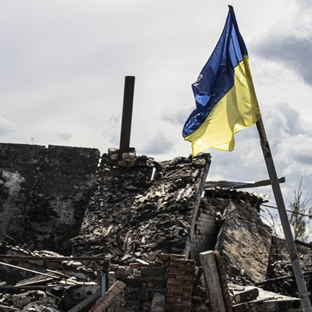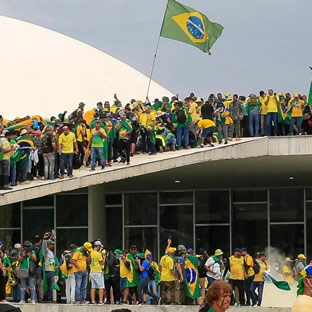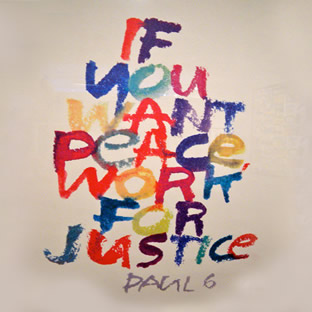The encyclical Fratelli tutti devotes the fifth chapter to “a better kind of politics, one truly at the service of the common good”[1]. In line with Guardini’s polar opposition, Bergoglio had already stated, in 1989, that good politics “helps to recover the horizon of synthesis and unity of a community: horizon of a harmonization of interests.”[2] Politics must properly manage tensions between the particular and the common good, between personal and collective identity. It is based on social friendship, “combines love with hope and with confidence” (FT 196) and, therefore, seeks dialogue and consensus. On the contrary, populist politics is reduced to “slick marketing techniques” (FT 15), forgets the common good and uses confrontation to achieve its selfish goals. “Lack of concern for the vulnerable can hide behind a populism that exploits them demagogically for its own purposes, or a liberalism that serves the economic interests of the powerful. In both cases, it becomes difficult to envisage an open world that makes room for everyone” (FT 155). Aristotle had already indicated the need for social friendship to build the political community, if it is oriented towards the good of others and overcomes the emotional attachment that seeks only pleasure or…
La solidarietà è considerata uno dei principi della Dottrina Sociale della Chiesa[1], ma soprattutto è un elemento strutturante della proposta di un umanesimo integrale e solidale, poiché la Chiesa è consapevole che la sua vocazione è camminare insieme a tutta l’umanità lungo il cammino della storia. La Chiesa diventa solidale già da questo atteggiamento primordiale, dal quale vuole incoraggiare e stimolare detto umanesimo. Un umanesimo capace di animare un nuovo ordine sociale, economico e politico, fondato sulla dignità e libertà di ogni persona umana, da realizzare nella pace, nella giustizia e nella solidarietà. La solidarietà, come principio e come virtù, spinge la coscienza cristiana ad accogliere con diligenza evangelica le vittime di ogni tragedia e violenza, ed allo stesso tempo esige l’esercizio della profezia evangelica per smascherare e denunciare tutti i mali che le provocano (cf. Fratelli Tutti, nn. 114-117). In questo senso, di fronte alla guerra in Ucraina, è doveroso esprimere piena solidarietà al popolo ucraino sofferente, allo stesso tempo, in solidarietà con tutto il popolo che non vuole la guerra, né come fine, né come mezzo, si deve dire a voce alta e con la massima veemenza: NO alla guerra, fermate subito questa invasione!Di conseguenza, devono essere sostenute…
O final de semana de 07 e 08 de janeiro passado ficou marcado no Brasil como um dos mais tristes para a nossa ainda jovem democracia (1889). Foram vandalizados na cidade-capital Brasília os prédios dos três poderes constituídos. Não bastasse o ataque físico e simbólico a locais tão importantes à vida política do país, o dano histórico e artístico agrava ainda mais a situação, uma vez que o patrimônio pictórico, documental e artístico ali presente foi praticamente todo destruído. Verdadeiros sinais de barbárie provocados por um grupo revoltoso que parece ter perdido sinais básicos de humanidade e mínimos de civilização. Homens e mulheres irracionalizados… Prefiro utilizar o termo assim, irracionalizados, em forma verbal flexionada em particípio passivo, pois tal situação é a ponta de um processo de formação e destruição de sentido de bem comum e vida social iniciado e fomentado por elementos econômicos e políticos atuantes já de algum tempo, não somente em âmbito nacional, mas também mundial. Enfim, massa de manobra a serviço de oligarquias políticas, agrárias e mercadológicas a quem não é interessante a constante e salutar ruptura do status quo constantemente promovida pelo movimento intrínseco aos regimes democráticos. Como bem enfatizou o atual chefe do executivo…
The concept of fraternity is complex and can be used at various levels (interpersonal, ecclesial, universal, cosmic) and with different meanings[1]. This term, with its variations (brotherhood, sisterhood, fraternity), was commonly used in the Middle Ages to refer to religious groups that were devoted to pious and charitable activities. Some associations of craftsmen and other professionals were also called “confraternities”. Today it is still used to refer, for example, to student associations and other religious or masonic groups. In the Catholic church it is usually applied to an entire religious Order[2] and to each of its provinces or local communities. The French revolution coined the motto: “Liberty, equality, fraternity”. Fraternity is thus associated to our common nature, to equality of rights and to an apparent universalism, but it does not overcome the dynamics of separation and tribal confrontation. The post-revolutionary order soon abandoned this term, “up to the point of its deletion from the political-economic lexicon”[3]. The French revolution conceives brotherhood “as coming from this world, from the similar heredity and nature of all”. Nevertheless, it “differentiated drastically and bloodily between the inner fraternal circle of the revolutionaries and the outer circle of the nonrevolutionaries”[4]. On the other hand, Marxism…
We asked some renowned moral theologians from different countries with ties of friendship to the Alphonsian Academy to write a post for our Blog. Our request to them was to write a comment on Fratelli tutti, nn. 256-262, by Pope Francis – these paragraphs discuss the very topical theme of the injustice of war. This is the fifth contribution of the series. Pope Francis returns to a frequent theme of his: «War is the negation of all rights and a dramatic assault on the environment. […] We must work tirelessly to avoid war…» (FT, n. 256). It is not an original idea in papal teaching. However, Pope Francis concretises it with a particular assessment of current circumstances. He notes in paragraph 258 that «in recent decades, every single war has been ostensibly “justified”». He concludes that «it is very difficult nowadays to invoke the rational criteria elaborated in earlier centuries to speak of a “just war”». Does this imply a development of the just war theory, or is it an appeal to replace it with a moral principle? The four conditions of just war theory are repeated in The Catechism of the Catholic Church (n. 2307). It leaves evaluation for…





